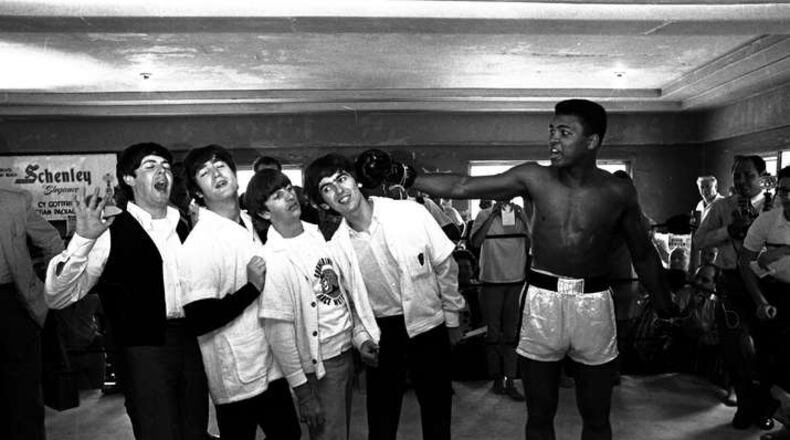Much has been made of the nostalgic, turn-back-the-clock element of Donald Trump's candidacy. It's right there in his slogan: Make America Great Again. If only we could go back to the good ol' days, right? That backward-facing orientation was challenged by some of Trump's GOP opponents, most notably Marco Rubio. But Hillary Clinton? Not so much.
Making that case quite well in The Week is Pascal-Emmanuel Gobry, in a piece on baby boomers' "unrelenting death grip on America." It's a quick read and worth reading in its entirety, but here's the relevant section about Clinton:
"While her husband sought to reach social-democratic goals while embracing technological change and economic realities, Hillary Clinton wants to simply turn back the clock to the mythical time of the 1950s steady union job.
"Hillary Clinton's other big cause seems to be identity politics. It's always 1964, and the scenario is always the same, with the old white male patriarchy holding women and minorities down. While it would indeed be an important milestone to have a woman president of the United States, it's ludicrous to suggest that any but a vanishingly small portion of the electorate thinks that a woman would be unqualified or unfit to be president."
These are excellent points (as is Gobry's observation that, as in other ways, Trump makes the perfect foil for her in this regard). I suspect Hillary's backers would say she is future-oriented because she wants Americans making solar panels and such. That's new technology, right? But that's the wrong way to think about it. For the purposes of the economy of the future, it matters little which kind of widget is on the assembly line; if you're still thinking in terms of widgets built on assembly lines -- by a large work force of humans, anyway -- you're not thinking very realistically.
Much the same can be said about Trump, of course, but that's my point: We routinely hear Trump's candidacy described as past-oriented. We don't hear it about Clinton's campaign nearly as often, even though in the aforementioned respects it certainly is. She's even regressing on such fronts as education reform and charter schools, areas in which Democrats often aligned with Republicans until their benefactors in the teachers unions made clear they weren't going to stand for it anymore. (If you're worried about money corrupting public education, that's where you ought to start.)
Since January 1993, boomers and near-boomers have had almost exclusive control of the executive -- Presidents Clinton (born in 1946), Bush (1946) and Obama (1961) -- and legislative branches -- Speakers Gingrich (1943), Hastert (1942), Pelosi (1940), Boehner (1949); Senate Majority Leaders Lott (1941), Daschle (1947), Frist (1952) and McConnell (1942). (Harry Reid, born in 1939, is a little too old to call him even a near-boomer; Tom Foley of the Silent Generation and Gen-Xer Paul Ryan held the speaker's gavel for less than three years combined -- so far -- during this period.)
After some good early results, the era of boomers wielding political power has seen a steady decline of progress and an uptick in partisanship. Maybe one conclusion from this election is that it's time for the boomers to hand the reins to the younger generations.
About the Author
The Latest
Featured



